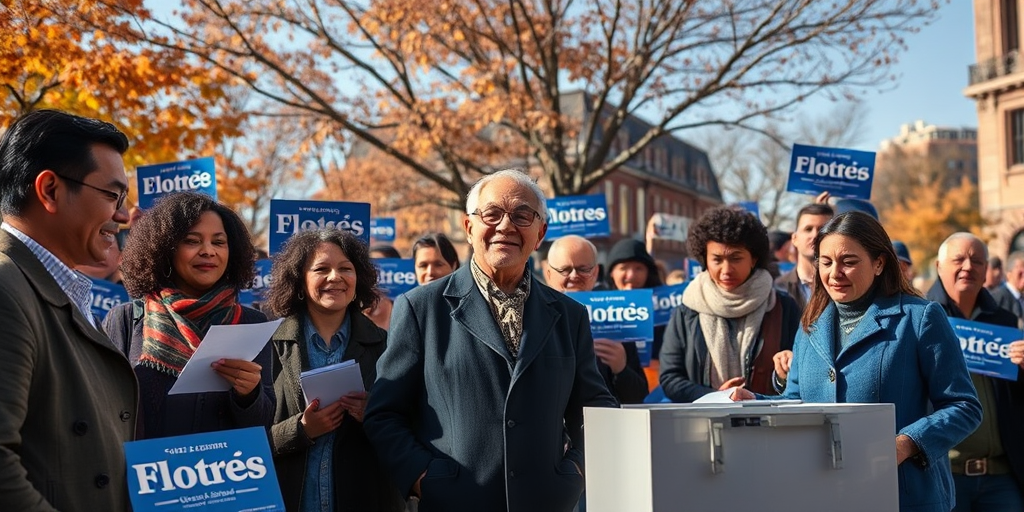Mamdani, Sherrill, and Spanberger Wins Signal Voter Embrace of Diversity, Equity, and Inclusion
In a significant rebuke to former President Donald Trump’s second-term agenda, U.S. voters in three pivotal elections have ushered in a new era of leadership marked by diversity, equity, and inclusion. The victories of Democratic candidates Zohran Mamdani, Mikie Sherrill, and Abigail Spanberger are not just political triumphs but a firm statement against the policies of division and exclusion that characterized the Trump presidency.
Historic Wins and Their Local Impact
These electoral successes are headline news, not only for their immediate implications but also for what they signify about the changing political landscape in the United States. In New York City, Zohran Mamdani—a democratic socialist and state Assembly member—has made history as the city’s first Muslim mayor. In Virginia, Abigail Spanberger emerged victorious as the state’s first female governor, while in New Jersey, Mikie Sherrill’s gubernatorial win underscores the power of a center-left coalition committed to economic recovery, education, and public health.
Mamdani’s ascent to New York City’s mayoral seat is a profound symbol of inclusive leadership, breaking a political tradition in one of the nation’s most dynamic urban landscapes. His campaign focused on affordability, police reform, and governance inclusive of the city’s rich demographic mosaic. “Let tonight be a message: New York belongs to all of us,” Mamdani declared in his victory speech, signaling a profound change for the city once synonymous with political dynasties.
In Virginia, Spanberger’s comprehensive campaign for pragmatic governance and reproductive rights secured her a robust mandate against her Trump-aligned rival. Capturing 56.1% of the vote, Spanberger’s victory is a testament to Virginia’s shifting political identity, marking a pivotal moment for a state with a historically conservative bent.
Over in New Jersey, Sherrill—a former Navy helicopter pilot and moderate Democrat—successfully campaigned for bipartisan solutions in a landscape marred by polarization during Trump’s tenure. Her emphasis on rational, inclusive policies resonated with voters seeking stability and equality in governance.
Community Reflections and Broader Implications
For local communities, these victories signify hope and change. Across the board, voters are embracing leaders who reflect the diverse fabric of American society. Experts suggest this shift is indicative of a broader pushback against policies that favored division over unity. Political analyst Keisha Dubois remarked, “These elections show that communities across America are choosing leaders who embody their values of diversity and inclusion. It’s a clear message that exclusion and hatred have no place in governance.”
The significance of these results goes beyond immediate political impacts. They serve as a beacon of progress, promising new avenues for legislating equality and advancing civil rights, issues that matter deeply to community members from New York City to the suburbs of New Jersey and Virginia’s heartlands.
Jayden Simmons, a Richmond-based community organizer, views Spanberger’s victory as a pivot towards inclusive policies that benefit all Virginians. “This win is for everyone in Virginia who strives for a fair future, where policies are driven by empathy and common good over partisanship,” Simmons stated.
Contextualizing with Ongoing Local Challenges
Amid these sweeping electoral changes, local challenges continue to demand attention. New York City remains troubled by housing affordability and systemic inequalities that Mamdani has vowed to tackle head-on. Virginia’s political landscape remains charged with debates on reproductive rights, particularly critical with Spanberger’s focus on freedom from restrictive governance. Meanwhile, New Jersey faces economic rebuilding as Sherrill promotes public health and education as central campaign pillars.
Additionally, broader national issues that have persisted since Trump’s administration—such as the erosion of civil rights and challenges to LGBTQ+ protections—remain pressing concerns that these new leaders are poised to address.
The Future: Navigating Change and Preserving Momentum
Looking forward, the task set before Mamdani, Sherrill, and Spanberger is to translate electoral success into effective policy-making that resonates with their constituents’ needs and priorities. As these leaders usher in a new era of inclusive governance, the eyes of the nation remain on them to provide a model of progress in a politically fractured society.
The ripple effects of these electoral outcomes may well influence other states grappling with similar sets of challenges, becoming a blueprint for aspiring leaders who champion diversity and equity.
The Fulcrum’s coverage has underscored the importance of these elections in setting a new course. As the community remains engaged, institutions and resources that support dialogue and reform become critical. Contact the League of Women Voters for local involvement opportunities or visit state and city websites for ongoing updates about the initiatives introduced by each leader.
In conclusion, these landmark victories highlight a shift toward governance that aligns with the community’s deepest aspirations for justice and equality—authentic demonstrations of the strength found in diversity and the potential for a more united America moving forward.







